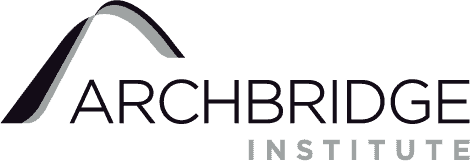This article was originally published on realclearpolitics.com
What should the Afghan refugees on our shores look for in America? Did they escape a failed state and come to the United States only to find the promise of the American Dream to be nonexistent?
The reality is, the American Dream is at a crossroads. We have come to a point where it is fashionable to “dunk” on that promise, so much so that we’re even reinventing classic American stories to undermine the American Dream. Based on today’s headlines, the dream appears to be in decline.
However, the numbers tell a different story. Most people, nearly 80% of Americans, say that they have either achieved the American Dream or they are on their way to achieving it. Only 20% claim the dream is out of reach, a finding which holds true across age, education, income, and race.
What does the American Dream mean? Is it the caricature of becoming wealthy or buying a fancy car? Not even close. Only 10% of people rate becoming wealthy as essential. Rather, the top factor that people rate (85%) as being essential to the American Dream is freedom of choice in how to live, which should hearten the refugees and other immigrants coming to the United States. Afghan refugees, for instance, can still find solace in American freedom. They can find similar solace in family: 80% of Americans believe that “having a good family life” is essential to the American Dream.
Money matters, but it is not the be-all and end-all. The American Dream is alive and well when freedom and family are valued above wealth. Moreover, the American Dream is underpinned by a sense of individual agency—the ability to control one’s destiny—a crucial ethos that continues to prosper in the imaginations of people across the globe and serves as a national vision here at home. When the American Dream is alive and well, there remains hope that we can tackle our own individual challenges and larger, societal dilemmas together.
Exemplifying the American Dream, people have addressed issues like the current COVID-19 pandemic head-on, which led American visionaries to produce three highly effective vaccines. Similarly, we can deal with climate change and think about strategies for adaptation instead of just mitigation, tackle important conversations on issues of race, or confront an outdated entrepreneurial ecosystem that has been declining over the last 40 years.
Conversely, if Americans fail to maintain that forward-looking, hopeful vision of the dream, our collective mindset becomes increasingly nihilistic and we doom ourselves as a nation. Freedom of choice, in addition to family, is inextricably linked to self-fulfillment and meaning. It allows us to find ourselves and reach our full potential. The ideal of the American Dream empowers us to move forward and tackle the major challenges of today.
Policymakers can ensure that the American Dream stays alive and well by addressing overly burdensome occupational licensure, which has increased barriers to entrepreneurship and business creation that in turn affect the opportunities for upward economic mobility. Promoting entrepreneurship and understanding that job creation more broadly represents the main vehicle to climb the income ladder is desperately needed. Policymakers, primarily at the state and local levels, can also defend the dream if they address the exorbitant rise of housing costs by reforming zoning and housing restrictions that increase living costs and affect school selection. Similarly, they can support healthier families, which represent the key ingredient to indispensable early childhood education that promotes skills and human development. Programs like universal child care simply cannot substitute for stable families.
The American Dream still matters because Americans old and new, such as the soon-to-arrive Afghan members of our nation, can and should expect to live better, richer, and fuller lives. Embracing that vision continues to make America the gold standard of the entire world.
We are only strong when the American Dream is alive and well. Thankfully, it is nowhere near dead yet.
Gonzalo Schwarz serves as president and CEO of the Archbridge Institute in Washington, D.C.


